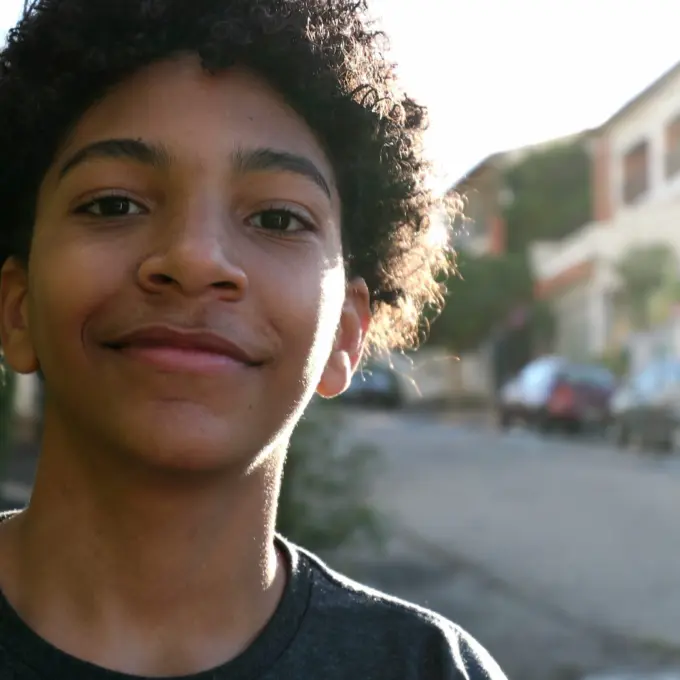
Young Londoners affected by violence and exploitation
VESS London:
The Safe Place
VESS London (Violence and Exploitation Support Service) has highly skilled caseworkers who provide long term and trauma-informed support to children and young people in London who are affected by violence and exploitation.
VESS London helps young Londoners feel safe, understood and empowered to move forward positively - with the right support at the right time.
For anything up to 2 years, young Londoners will work with Specialist or Expert Caseworkers who will work alongside them around areas including around safety awareness, improving health and emotional wellbeing, as well as improving relationships with peers and family dynamics.
VESS London is delivered through an alliance partnership consisting of Safer London, St Giles Trust, New Horizon Youth Centre, Anna Freud and Mayor's Office for Police and Crime (MOPAC).
Making a referral
Referrals can be made by professionals in statutory or non-statutory services, family members or young Londoners themselves.
We currently have capacity to accept referrals for young Londoners from any London borough.
Referral Criteria
We can work with children and young Londoners living in any London borough, aged up to 25 who are directly impacted or at significant risk of violence and/or criminal/sexual exploitation.
Please note we can’t accept referrals where the concerns solely relate to domestic abuse/violence or accessing housing. For a referral to be accepted there must be concerns around violence, criminal exploitation or sexual exploitation. This doesn’t mean we can’t address the issues of DA/DV or housing where they are present for young Londoners, but the primary reason for referral must be youth violence, criminal or sexual exploitation.
If you or someone you know needs specific support around DA/DV or housing there are organisations you can contact including:
- National Domestic Abuse helpline: 0808 2000 247
- Women’s Aid: http://www.womensaid.org.uk
- Shelter: shelter.org.uk
How to make a referral
Before making a referral, please ensure that the young Londoner has given consent to share their information with us.
When making a referral it is important you complete each section of the form with as much detailed information as possible. This will allow us to effectively process the referral and get the young Londoner the support they need.
When a young Londoner is referred into Safer London, our Front Door team screens and processes each referral. The team then allocates a dedicated Specialist or Expert Caseworker to the young Londoner, taking into consideration their individual circumstances and needs.
Once you have submitted your referral, we will confirm receipt within 2 day working days. In this we will also include any requests for additional information, this may also include a request for any documents that may be needed to support the referral. Although we do understand sometimes this isn’t possible, we do politely ask you respond to any requests within five working days, as this significantly speeds up the process of allocating a Caseworker to the young Londoner.
To make a referral for a young Londoner please complete the online form.
Once a referral is received the Front Door team will contact the young Londoner to confirm they happy to access Safer London’s services and support.
As our services are voluntary, we ask that an agreement to access services declaration is completed. This is so the young Londoner understands the nature of the intervention, and that they are happy to go ahead with the support. The agreement to access services declaration is completed with support of the young Londoner’s Caseworker in their first session.
If you have any queries please email the Front Door at referrals@saferlondon.org.uk
Make a referral
CLICK HEREVESS London specialisms
The service is funded by MOPAC as part of the mayor’s wider commitment to reduce and prevent violence and exploitation and protect children and young people from being exploited or harmed.
Frequently asked questions
What does the service do?
Each young Londoner is matched with a dedicated caseworker who offers consistent, one-to-one support shaped around their individual needs. Sessions take place in safe, trusted locations like schools, cafés or community spaces.
Support can include help with:
- Advocacy and safety planning
- Emotional wellbeing and mental health
- Relationships with peers and family
- Education, training and employment
- Housing and resettlement
Specialist areas of expertise include:
- Violence
- Sexual exploitation
- Criminal exploitation including County Lines
- Support for girls and young women
- Neurodiversity (SEND)
- Families (parents and carers)
- Wellbeing (emotional wellbeing)
- Education, training and employment
- Housing and resettlement
VESS London also operates a ‘Rescue’ service to safely return children and young people who have come into contact with authorities outside London due to suspected county lines activity.
What does the support look like?
Young Londoners referred to the service are allocated a dedicated caseworker who works with them on a one-to-one basis.
The intervention is tailored to meet the young Londoner’s needs including support surrounding safety awareness, improving health and well-being, improving relationships with peers and family dynamics. Sessions are delivered in a place that is safe for that young Londoner, whether this be at school or elsewhere in the community.
Interventions can last anywhere up to 2 years dependent on the young Londoner’s needs. The length of the intervention is decided on a case-by-case basis and is reviewed regularly throughout the programme of support.
Is the service in-person, outreach-based, remote, or hybrid?
The service is person-centred and tailored to each individual’s circumstances and risk factors. Support is typically provided in person at locations that have been risk-assessed to ensure the safety of both the young person and the caseworker. However, if significant risks are identified that could be worsened by meeting in the community, online sessions are arranged until the risk level is reduced. It is important to note that this service operates across all of London.
What does being part of VESS London mean for a young Londoner?
From the point of allocation, each Young Londoner receives person-centred, one-to-one support delivered in safe, risk-assessed environments by VESS caseworkers. This support includes having a consistent, trusted professional who actively listens, collaborates to explore solutions, and advocates on the young person’s behalf when appropriate. The focus is on identifying resources that broaden their options and support positive change.
Young Londoners are encouraged to express their needs and aspirations, and to take an active role in shaping both their futures and the services they receive.
Caseworkers work at a pace that aligns with the young person’s individual needs and in close collaboration with any existing professional network. The core objectives are to reduce harm and enhance safety. In addition to one-to-one support, young people also have access to education, training, and housing advice.
Who delivers VESS London
Commissioned by the Mayor’s Office for Policing and Crime (MOPAC), VESS London is delivered by a pan-London alliance of expert organisations Safer London, St Giles Trust, New Horizon Youth Centre, Anna Freud and MOPAC.
What specialisms do you offer?
While VESS London offers one-to-one support to help young people build and maintain healthy relationships, increase safety in the community, access education or employment and coordinate support services, we also provide a range of specialist services.
We have particular expertise in supporting girls and young women, especially in cases involving coercion and sexual exploitation. In addition, we offer support for families and carers of those affected by violence and exploitation, along with access to specialist housing advice.
What housing support does Safer London offer?
As an organisation Safer London is not a Housing Provider and we don’t have preferred access to any housing stock.
Our housing offer is that of support. We raise awareness of housing options available to young people in London and provide advice on how best to access that resource. We can advocate on behalf of the young Londoner, referring them to housing providers and speaking on their behalf.
In extreme circumstances where the risk of serious imminent harm is evident and verified, we will seek to assist the most vulnerable to find places of safety. However, it must be noted that decisions about who is deemed vulnerable and therefore in priority need is not determined by us but by the definitions contained within the Housing Act 1996 s189 and the interpretations of that made by Housing Needs departments.
What is the role of a caseworker?
The role of a VESS London caseworker is to build supportive, professional relationships with Young Londoners and engage with them at least weekly. Caseworkers help young people understand the challenges they face, reduce their risks, build resilience, and co-develop coping strategies. They also work to amplify young people's voices, encourage agency, and collaborate closely with their professional network to enhance safety and confidence.
Are caseworkers allocated areas?
Caseworkers have designated geographical clusters across London which help with travel efficiency however, based on the specific needs of a young Londoner, a caseworker may sometimes work outside of their designated cluster. This can also occur if a young Londoner they are already supporting is relocated to another borough for safety reasons.
What do safeguarding processes look like within the service? How are service users safeguarded within the VESS?
Safeguarding is embedded across all levels of practice, combining statutory safeguarding duties with contextual safeguarding principles and a strong culture of reflective supervision. Our framework ensures that risk is identified early, appropriately escalated, and continuously reviewed in a way that is both accountable and supportive.
At the frontline, safeguarding concerns are discussed routinely between caseworkers and service managers. Where concerns do not meet the threshold for Need-to-Know (NTK) escalation, they are monitored and reviewed by the service manager, who retains responsibility for ensuring that safeguarding actions are proportionate and effective. These concerns are addressed through reflective discussions that assess risk, identify actions taken, and support practitioner development.
Where safeguarding concerns do meet NTK criteria-defined by a set of internal thresholds-they are escalated to the Deputy Head of Safeguarding (DDSL) or Head of Safeguarding (DSL), who takes on oversight and initiates a structured safeguarding review process. These cases are discussed in joint meetings involving the caseworker, their manager, and the safeguarding lead, and are subject to ongoing reviews until the concern is appropriately managed and risks are mitigated.
Does the service support refugees and those who are seeking asylum?
Yes
What is an NRM, and who completes it?
The National Referral Mechanism (NRM) is a framework used by professionals to identify, refer, and support victims of human trafficking and modern-day slavery. The completion of NRM documentation can only be undertaken by First Responder organisations. You can find more information about this here.
I can’t access the referral form
Make sure you are using Google Chrome, Firefox or Microsoft Edge when accessing the link. Other issues not allowing the form to open could include:
- An unstable internet connection.
- Firewall protection set up by your organisation – in this case please speak to your IT department/provider.
The referral form is asking me for a log in
If you are asked for a log in to access the form this is because you either have bookmarked the referral link or copied and pasted the link from your browser window.
Every time you wish to put in a new referral, you must do so by coming back to this page and clicking the link to the online form.
I am in the form, but I am unsure what information is required to complete it
Please check the ‘How to Make a Referral’ section on this page. If you need further assistance in completing the form please email our Front Door team referrals@saferlondon.org.uk at or call them on 0207 021 0301
The referral form won’t submit
If your form won’t submit it’s likely that your session has timed out. This can happen:
- due to a loss of internet connection,
- if you have had the form open for four hours and not submitted.
Unfortunately, the form doesn’t save information as you go. You will need to start the application again from the beginning.
What happens when I make a referral? When will I hear back from someone?
Once your referral is received, you will receive an email confirming that it has been acknowledged. Within two working days, a member of the Front Door team will contact you for further details. Depending on the referral details, this may include gathering additional documents like previous assessments, EHCP plans, Child in Need plans, existing safety plans or chronologies. In most cases, we aim to allocate the case to a caseworker within 10 days, but this depends on how quickly we can collect the necessary information.
I have made a referral, but haven’t heard anything yet
We aim to get back to you within two working days of submitting a referral. If you haven’t heard from us and the timeframe has passed, please email the Front Door team referrals@saferlondon.org.uk.
Are there an allocated number of spaces for each borough or is it first come, first served?
No, referrals are handled on a first-come, first-served basis.
Can boroughs be advised of capacity levels prior to the service being closed to allocations?
Yes, we can send updates to borough SPOCs when we are nearing full capacity.
I have a query about the service, who can I contact?
All queries should initially be directed to VESS London’s Front Door team. You can reach them by phone at 0207 021 0301 or via email at referrals@saferlondon.org.uk.

Refer a child or young person into VESS London - so they can get the support they need and deserve.
Make a referral today!
CLICK HERE